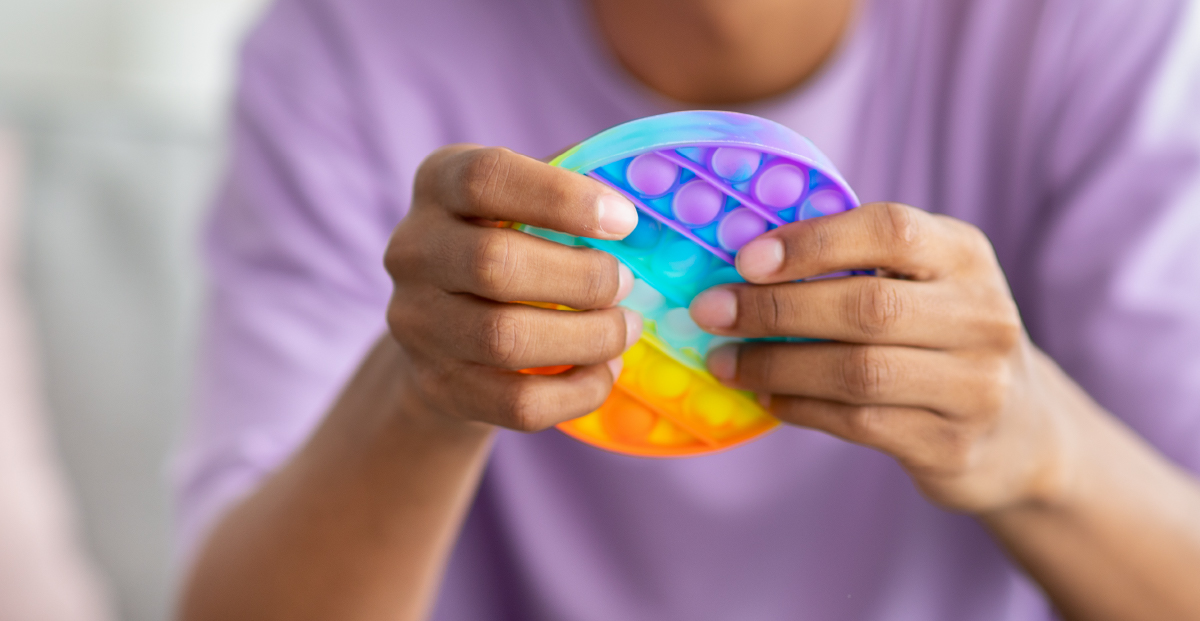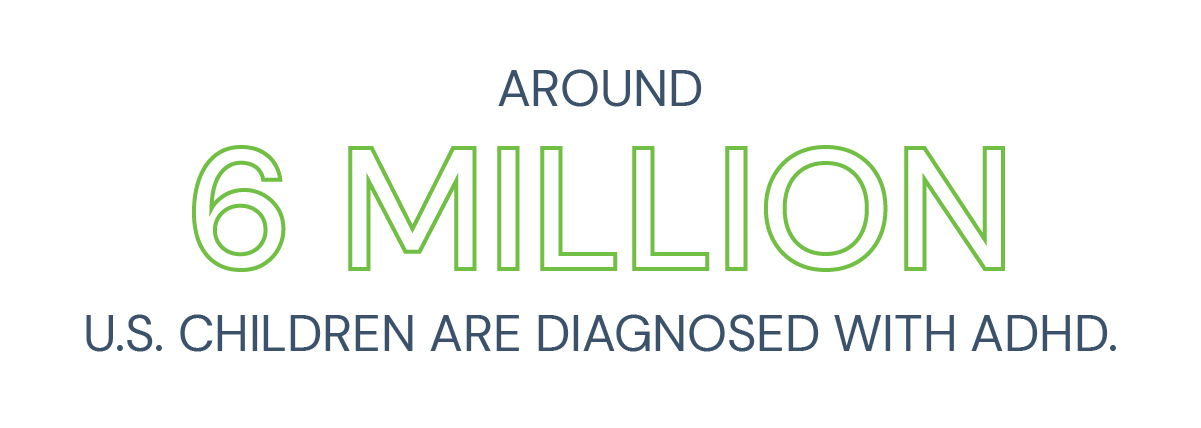
May 4, 2023
For students and adults who have trouble focusing, the fidget spinner promised increased rates of attention and a higher likelihood of staying on task. But do fidget toys, like fidget spinners, actually provide any benefits for users?
What Is A Fidget Toy
The objects reached the height of their popularity in 2017, but the idea for “fidget toys” has existed much longer. The toys largely gained traction due to their popularity on social media, becoming staples inside and outside the classroom setting. The most recognizable fidget toy, the fidget spinner, is usually flat, with two to three “legs” that rotate around the center of the object, but fidget toys take on many shapes and sizes. Fidget toys are promoted to help those who have trouble focusing, want to relieve nervous energy or anxiety, and retailers specifically advertise these toys to parents of children who have ADHD and autism.

Why Are Fidget Toys Popular?
Around 6 million U.S. children are diagnosed with ADHD. ADHD, or attention deficit hyperactivity disorder, manifests in symptoms that include the inability to focus, impulsivity and hyperactivity. Some small-scale studies have shown a correlation between higher levels of movement or fidgeting and increased rates of attention in children with ADHD. Studies like this have led to the rapid acceptance of fidget spinners, especially among parents of children with ADHD or other attention disorders, as a method of minimizing distraction.
Do Fidget Toys Help Users Focus?
It’s important to note there is a lack of peer-reviewed evidence proving the legitimacy of fidget spinners and other toys—before we can prove fidget spinners are effective, more studies need to be conducted. The studies that have been done have produced mixed results. Some studies have shown immediate helpfulness, followed by an attention drop-off in children using fidget toys in a classroom setting.

It’s important to note that, though once popular in classrooms across the country, fidget spinners have been banned by many schools, from the elementary to high school levels. Teachers, administrators and parents claim these toys cause further distraction among students and actually prevent children from focusing on class work instead of encouraging it.
While there’s not a wealth of proven, tested information on the validity of fidget toys, it may be worth trying one out for yourself or your child at home. Talk to your Coryell Health family medicine physician for more information about fidget toys, or reach out to them today to learn more about studied, verified tools or medications to increase rates of attention in children and adults.
 Skip to content
Skip to content
